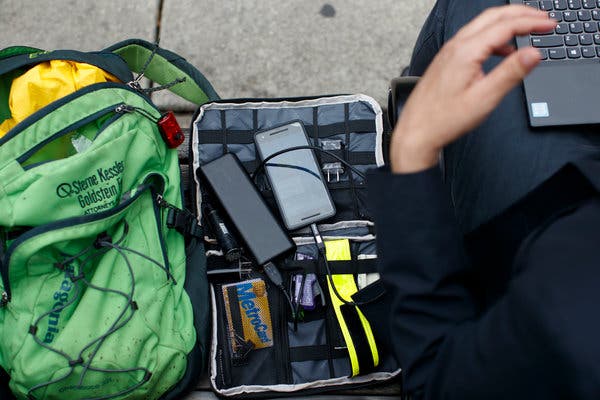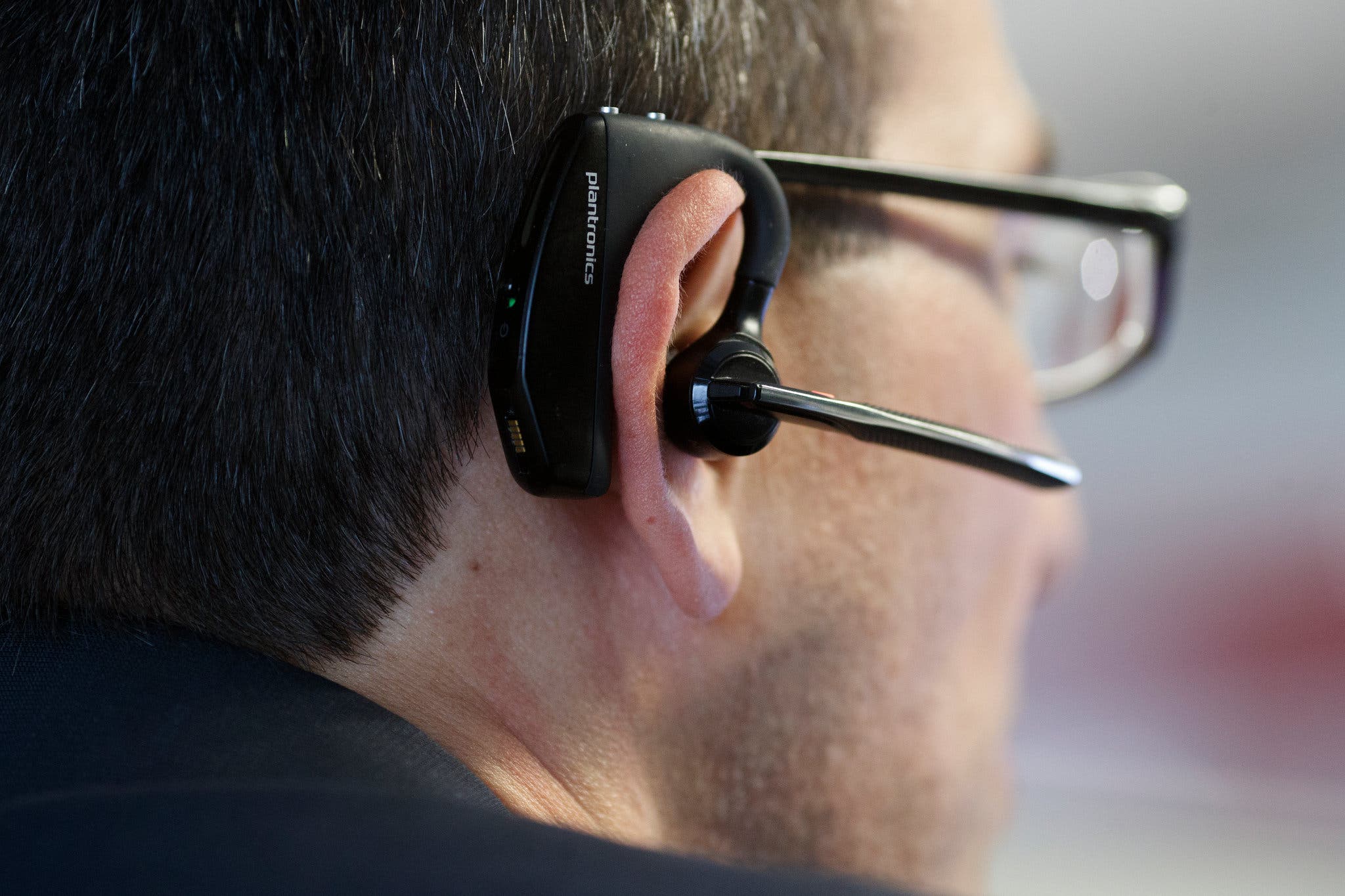How do New York Times journalists use technology in their jobs and in their personal lives? Eric Lipton, an investigative reporter in Washington, discussed the tech he’s using.
What are your most important tech tools for staying on top of your beat?
My single most important tool? Backup power.
It’s been an obsession of mine since my days as a homeland security and disaster reporter at The Times, when I covered the Sept. 11 attacks, Hurricane Katrina, and the earthquake and tsunami in Indonesia. I never leave the house without a portable power supply that keeps me going at least 20 hours. That means I carry an Anker PowerCore 20100mAh, which can charge my Pixel 2 cellphone at least seven times. I also have an extra six-cell battery for my ThinkPad X270 laptop, which already has a super-large six-cell battery built in.

I also have two Plantronics Voyager Bluetooth headsets (the best on the market in terms of sound quality), as I use them so much I keep the second one charged and ready to go. I also carry an Anker 40W 4-Port USB Wall Charger, as well as enough random charger wires that airport security officers give me an odd look (and often a second scan) when I pass through the checkpoint even with my T.S.A. PreCheck. (Yes, well worth the $17-a-year cost.)
I often work inside a Google ecosystem, as I find there are a bunch of Google tools that make me much more productive. They include Google Voice, which allows me to have a single telephone number that rings on any phone I choose, or as many as six phones simultaneously. Google Voice also transcribes my voice mail messages instantly and texts me the message, so I never listen to voice mail. It also allow me to use my laptop to dial phone calls just by clicking on a number, which then connects instantly via my cellphone. So most of my outgoing calls on my cellphone are via Google Voice, including international ones, which are super cheap.
Google Docs is also massively important for me, as it allows multiple people to simultaneously be writing and editing in the same file, constantly saving all changes, with a detailed revision history. It also comes with an edit trace function, so you can see what others are doing if you turn it on. One story I helped deliver had reporters in Latin America, Asia, the United States and Europe in the same file, as if we were standing over the same typewriter composing the piece together.

Another important tool is my Olympus WS-821 digital recorder, which comes with a USB stick so I can immediately transfer interview recordings into my laptop and name them by subject and date. Then if I need a quick rough transcript, I upload it to Trint, by far the best automated transcription service, at $15 for each transcribed hour of interviews. Within minutes, I can have a relatively clean transcript of an interview.
If I need to record a telephone interview (and have permission to do so), I use a low-tech option: the Olympus TP-8 Telephone Pick-up Microphone, which works instantly and reliably on any phone I might have to use, land line or cellular.
Whenever I travel for work, I constantly take photos with my Pixel 2 cellphone that might seem like irrelevant details but that offer fact-checkable color in greater detail than I could ever write down in a notepad. They are then automatically backed up when I am on Wi-Fi by Google Photos.
Also: LastPass helps me securely manage the dozens of websites I have passwords for. LinkedIn is helpful, in finding people and getting biographical information, as is an extension called ContactOut, which helps find emails and other contact info for LinkedIn users. Signal has become an important tool to communicate with certain sources. Twitter is a huge distraction, but is also an essential tool to keep up to date on topics I am tracking, and to help promote the work of The Times.
One of your recent scoops involved uncovering the emails of Scott Pruitt, the head of the Environmental Protection Agency. You must pore through thousands of documents for these investigations. Do you use any special tools to stay organized or streamline the process?
One of the most challenging parts of my job is the massive number of documents I have to read, most of which are junk, but hidden in there are some real gems. A PDF reader is just not good enough.
I have traditionally used Adobe Acrobat Pro DC, as it has good optical character recognition tools, which index the words on each page, allowing you to do word searches. More recently, I have been trying out a service called Logikcull, created for law firms to do document discovery work but useful when trying to analyze and annotate piles of documents that I get via Freedom of Information Act requests, which in some cases can run to 18,000 pages. Document Cloud is also a tremendous tool.
I have a simple but low-tech trick for keeping track of documents. As I extract individual emails, other documents or audio files, I name them this way: “2017_4_24 Pruitt NMA Naples Fla Calendar Entry.” That date format means that if you have, say, 20 documents in a folder, they will automatically line up chronologically. It is a super fast way to have a timeline of all your primary source documents, and makes it easy to find them instantly in chronological order. Try it out. It is pretty cool.
Away from the office, what tech product do you and your family love?
I am pretty low tech when not working. I have concluded I prefer to read books on paper. I ride my bike all around Washington. And I find all those Alexa and Google Home devices sort of creepy and unnecessary. I do have an Ecobee thermostat with extra sensors in our house that targets heating or cooling only to rooms that are occupied.
What could be better with some of the tech tools you use?
Trint is a tremendous technology. But it is still not perfect, particularly if the recording is not really sharp.
Similarly, Logikcull is a super cool tool. But I think it needs to be tweaked before it can fully address my needs, such as being able to upload and optically recognize that 4,366-page FOIA response I got this month. I tried that and was told to break it up into 100-page chunks. (Not worth the effort, although the company told me that it would soon be able to handle bigger documents.)
Most annoying: the fan on my ThinkPad laptop. It never seems to turn off. It is always running hot. Guess I am a power user.
Originally published here.
Trint Enterprise is ready to take your organization to the next level with features tailored for business: an API for seamless integration, single sign on, highly secure data and a usage dashboard to monitor data. To find out how we can help your business grow, email hello@trint.com.